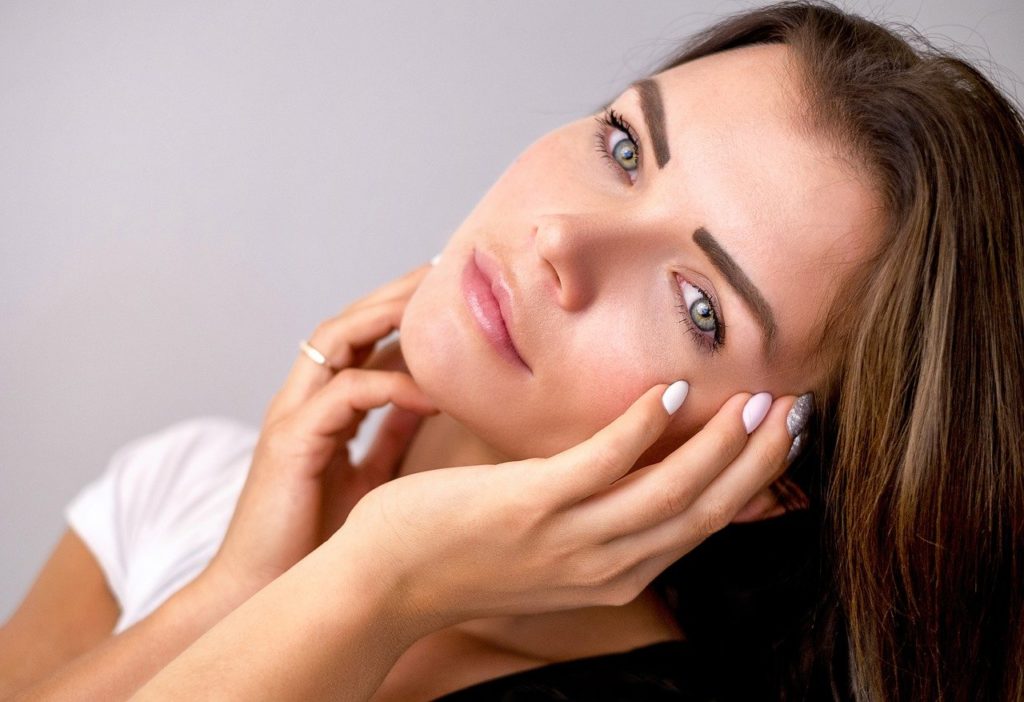Blog
Aesthetician or Esthetician: What’s the Difference?

Knowing how to choose between aesthetician or esthetician can be confusing when the spelling is so similar – they both deal with skincare but in different ways.
These differences matter because your skin matters. You may only consider it from a beauty perspective – like keeping track of those fine lines and wrinkles – but your skin has a great function. It’s an excellent protector, the barrier between your blood, bones, and organs and the rest of the world. It’s literally your container. Not only that, but it’s the largest organ of the human body.
Your skin also serves as a major player in the regulation of your body temperature. That’s why it’s crucial to take good care of your skin.
Sometimes your skin needs more attention and nourishment than you can offer it. When that happens, it’s time to visit an expert! In the past, you’d go to a spa for a facial or to a doctor for medical needs. But today there are so many choices that finding the skincare specialist you need can seem daunting.
That’s because there are all kinds of terms for skincare specialists – including the two that may be making your eyes cross here: aesthetician and esthetician.
Aestheticians and estheticians are commonly confused. After all, the only difference between the two is the addition of an “a” at the beginning, right? Wrong! Although it’s not always the case, aestheticians and estheticians mostly have different skillsets, training, and licensing.
If you’ve been wondering what the difference between the two is and which one you should see for your skincare needs, read on!
Aesthetician or Esthetician?
Estheticians and medical aestheticians are both skincare specialists. Sometimes the two titles are used interchangeably, but there can be a technical difference between them. The main practical differences between the two, however, are the types of clients they work with and the settings in which they work. The services they offer also varies from state to state, depending on state law.
What is an Esthetician?
The odds are that if you’ve ever gotten a facial at a spa or salon, then you’ve already met an esthetician. They’re commonly called skincare specialists, skincare therapists, and spa technicians. Generally, estheticians focus on cosmetic treatments, whereas the aesthetician’s role is more medical. Estheticians usually offer the following services, including
- cleaning your skin using skin exfoliation, massage, aromatherapy, and facials
- analyzing your skin to identify any health problems
- temporarily removing hair from your face or body.
Estheticians are experts in beautification. In some cases, they may apply makeup or consult you on the best products for your skin type.
Where can you find an esthetician?
You will find estheticians at beauty salons, resorts, fitness clubs, and spas.
What is an Aesthetician?
Aestheticians – also known as medical, clinical, or paramedical aestheticians – are skincare specialists who have a clinical focus. If you’re a cancer patient, burn victim, or have had other health-related issues that required attention to your skin, then you’ve likely worked with an aesthetician.
Your aesthetician will treat and maintain facial skin that’s been damaged by fire, surgery, chemotherapy treatments, and other incidents. You can also find aestheticians working with dermatologists to address rashes, acne, or other skin issues resulting from medical treatments.
But medical aestheticians can also help you cleanse and moisturize their skin, as well as choose and apply the right makeup for your circumstances.
Medical aestheticians usually work in
- hospitals
- burn units
- trauma centers
- reconstructive surgery centers
- med spas
- dermatology offices
- clinics
What kind of education and training do estheticians and aestheticians receive?
Typically, estheticians and medical aestheticians obtain formal education in cosmetology or esthetician training. Programs may offer an associate’s degree, certificate, or diploma on completion of the program.
Trainees often take classes in
- chemistry
- anatomy
- physiology
- nutrition
They’re also trained in how to use the necessary electrical machines and equipment. But – depending on your state’s laws – only a medical aesthetician can perform certain services.
Skincare specialist and esthetician programs typically include hands-on training and coursework in the following:
- Dermal filler training
- Botox injection training
- Laser hair removal
- Photofacial skin rejuvenation
- Laser wrinkle reduction
- Tattoo removal
- Body contouring
- Microlaser peel
- Skin resurfacing
- Laser Hair Removal
- Body Contouring
- Cellulite Reduction
- BBL
- Photofacial
- Skin tightening
- Sclerotherapy
- Makeup application
- Business and communication skills
There’s a lot of overlap between medical aesthetician and esthetician programs, but an esthetician program tends to be more generalized, while medical aesthetician programs are more clinical and specialized.
Regardless of what program they go through, an esthetician must complete practical training in order to get their license – the U.S. Bureau of Labor Statistics (BLS) requires skincare specialists to be licensed, although licensure requirements do vary by state.
Typically a license requires formal training and a high school diploma. Some states also require a minimum number of completed training hours and for the applicant to be above a certain age.
Still a little confused about the difference between an aesthetician and an esthetician?
The truth of the matter is there’s still a lot of discussion about whether or not there is a real difference between an aesthetician and an esthetician.
In fact, when you’re looking for skincare services, you may not need to concern yourself with which is which. This is especially so if you trust the dermatologist, clinic, spa, or other provider of the service. Just keep an eye out for good reviews and relevant licenses and certifications to make sure your provider is up to date on how to use the latest equipment, products, and treatments safely and effectively.
Are you ready to give your skin the care and nourishment it deserves?
We offer non-invasive and minimally invasive treatments and techniques to treat the epidermal and dermal layers of your skin. Our goal is to keep your skin healthy and beautiful. We offer a variety of treatments like microdermabrasion, chemical peels, laser hair removal, intense pulse light therapy, radiofrequency, microneedling, and cosmetic injectables. All our services are performed by highly qualified experts in their field.
Put your best face forward!
- Schedule a consultation – get in touch with us via text, phone, or email
- Get your labs & comprehensive health report
- Start feeling your best with Health on your Horizon!
Links




